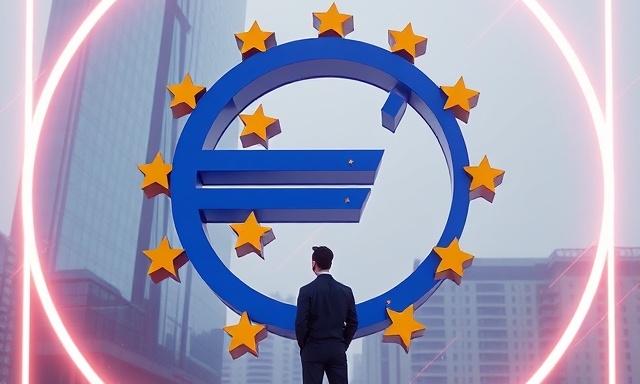What’s Stirring the Pot with the Digital Euro? Let’s Dive In!
Hey there! So, you’re curious about the buzz surrounding the digital Euro? Trust me, it’s a hot topic right now, and for good reason! As a young Korean American guy who’s been knee-deep in the crypto scene, I can tell you, the developments in Europe are something we all need to pay attention to. Whether you’re looking to invest or just want to stay informed, understanding the digital Euro’s implications can give you a leg up in the crypto market.
Key Takeaways:
- The European Central Bank (ECB) is developing a digital Euro aimed at enhancing online payment systems.
- Ongoing debates about regulatory control and wallet limits are creating political tensions among EU member states.
- There’s a tug-of-war over who gets to dictate financial freedoms and stability within the region.
Alright, let’s break this down. The ECB has been working on this digital Euro since 2021, and honestly, it’s exciting! The idea is that this digital currency will make online transactions safer and more convenient, and it’s designed to be free to use, much like cash. But trust me, it’s not all sunshine and rainbows; there’s some serious drama unfolding behind the scenes!
The Wallet Dilemma: How Much is Too Much?
One of the core debates revolves around how much money people can actually store in these digital wallets. Some folks in the EU are sweating bullets over the potential consequences of a high storage limit. The fear is that people might start pulling out large sums from their banks during a crisis, which could rock the entire banking system.
On the flip side, many are screaming about personal financial freedom, claiming that imposing a limit feels a bit dystopian—like something out of a sci-fi movie where everyone’s wallets are being watched, you know? Imagine a world where the government has a say in how much money you can hold! It’s enough to make anyone a bit uneasy.
The Cost of Commitment
Now, let’s talk about the implications of the ECB’s commitment to this new digital currency. Since Facebook’s ambitious Libra project flopped in 2019, central banks worldwide have been scrambling to get it right. The ECB sees its digital Euro as an efficient alternative to conventional payment systems, aiming to lessen Europe’s dependency on U.S. payment platforms while boosting local economies.
But hold up! The central bank’s strong grip on the situation isn’t sitting well with everybody. Some EU member states feel that the ECB is straying into "technocratic" territory, which is like that uncle at a family gathering who won’t stop giving unsolicited advice. There are whispers of political maneuvering as countries like Germany and France push back, aiming to wrest some power back from Frankfurt, the ECB’s headquarters.
Differing Views and Political Power Plays
The current regulatory draft gives the ECB extensive power in determining how much digital currency users can store in their wallets. These discussions are not mere trivialities; they affect everyone in Europe. Diplomats are calling this a matter of political supremacy, making it clear that the digital Euro isn’t just about currency; it’s about the control of financial services that impact everyday life.
This ongoing debate is super critical because it reveals the heart of the issue: How much control should a central authority have over our finances, especially in a digital age? If the regulators aren’t careful, they might end up creating a system that people resist rather than embrace.
Practical Tips for Investors
Now, if you’re wondering how all this translates into practical advice for your investment strategy, here are a few nuggets of wisdom:
-
Stay Informed: The landscape is shifting. Follow credible crypto news sources, and keep an eye on changes in policies regarding digital currencies.
-
Diversify: While the digital Euro might have potential, don’t put all your eggs in one basket. Look into several cryptocurrencies and digital assets to balance your portfolio.
-
Think Long-Term: These regulatory developments are significant, but they take time to unfold. Stay focused on long-term trends rather than short-term fluctuations.
- Engage in Discourse: Being part of the community means sharing insights. Engage with forums or groups discussing these topics. It offers multiple perspectives that can enhance your understanding.
Reflecting on the Future
So, what’s the bottom line here? The digital Euro is not just another cryptocurrency; it’s a foundational shift in how money can function in our society. As the debates and regulations shape its rollout, we’re witnessing an evolution that could impact everything from our daily transactions to our broader financial landscape.
But here’s my burning question for you: In a world where digital currencies are becoming the norm, how would you feel about your financial freedom being potentially controlled by a central authority? Isn’t that a thought worth pondering?




 By
By
 By
By
 By
By
 By
By

 By
By